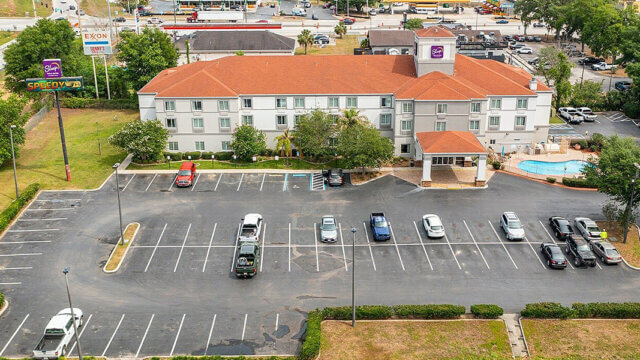By Dennis Hopper
It’s safe to say that the hospitality industry is one of the hardest-hit sectors in the U.S.; however, it appears that the consensus is that hotels will rebound back to 2019 performance levels sometime within 24 months. We’re here to talk about what private hotel owners and investors are saying, and what changes we’re anticipating in the hotel transaction market moving forward. This article is based on thousands of discussions with private hotel owners and investors throughout the U.S. since the start of the pandemic. Its purpose is to provide insight on how the market is being perceived by owners/investors and how it is shifting as it relates to buying and selling hotels.
We’re sharing the general sentiment that we’re receiving from the marketplace in an effort to help hotel owners and investors make more informed decisions with their hotel investments moving forward. This is only one piece of the puzzle, but it’s an important one.
Buying
We’re seeing two segments of hotel investors—opportunistic buyers and fair market value (FMV) buyers. The FMV buyers are basing pricing off of 2019 financials while applying a discount between 5-15%. Most of this buyer type was already searching for hotels before COVID-19, and they are still willing to pay fair prices for well-positioned properties.
The majority of buyers that are active right now are the opportunistic buyers—meaning, they are searching for financially distressed properties at a discount. These buyers aren’t having much luck in finding distressed properties because we are still in a time period where hotel owners are able to get forbearance or payment deferment for their mortgages for three-to-six months. Once this time period runs out (Q3 and Q4 2020) and lenders require full mortgage payments (regardless of market conditions), we will likely see the first wave of financially distressed hotel buying opportunities. There will be owners that are simply not producing enough revenue to make those mortgage payments.
We’re seeing very high demand from opportunistic buyers that are waiting for real-estate owned (REO)/bank-owned properties to become available for sale; however, with such a large demand, it will create less of a discount in price than investors are anticipating. For example, if 10 cash-heavy buyers are all after the same REO hotel, they are going to drive the price up through a bidding war and receive less of a discount than if there were only two or three buyers.
One difference that we’re hearing from the marketplace right now compared to the 2008 financial crisis is that investors and owners are optimistic that hotels will rebound back to 2019 performance levels sometime within 24 months, which would mean far less risk for buyers and therefore less of a discount then in 2009-2010, when investors were not optimistic of a rebound. If the market didn’t believe that hotels would rebound in the foreseeable future, then there would be significantly less buyers ready to buy, and they would get bigger discounts in price. Ultimately, while there will be distressed hotels available for sale, the discounts won’t be nearly as steep as the 2008 financial crisis.
Selling
The current sentiment from the marketplace is that it isn’t a good time to sell because lending is mostly not accessible, and it’s an all-time low point for hotel revenues across the board. In contrast to this point, while conventional and CMBS loans for hotels are not available, SBA loans for hotel acquisitions are becoming increasingly more available as hotel revenues rebound. The accessibility is due to the loans being government backed—therefore, less risky for the lender. The caveat to the loans becoming available will be that buyers/borrowers seeking SBA loans will need to place more equity into the project and will likely need an existing background in hotel ownership. The more stringent lending requirements will decrease the buyer pool and create compression of value as a result of having fewer buyers.
According to several SBA lenders that specialize in hotels, it will be very difficult to provide financing to first-time hotel buyers, and it will be vital to have more equity injection with reserve funds available to mitigate risk of default. With all of this in mind, since SBA loans will likely be the most accessible loan type (for hotels that meet SBA lending parameters), it will be a major component to transaction recovery. Without financing options, buyers aren’t going to buy and the ones that do would require big discounts, which would push values down for everyone.
Conclusion
It’s unknown how the upcoming months will pan out for hotels, but there appears to be a relatively high level of optimism that a recovery is imminent within the next 24 months. This optimism, coupled with an abundance of buyer demand for discounted hotels, will create less discount in pricing than most investors are anticipating, which will limit the decline in hotel valuations as long as hotel performance continues to improve. As lending becomes increasingly available, there will likely be a mix of financially distressed transactions and regular market transactions taking place as soon as Q4 2020.
Dennis Hopper is managing principal of hotel brokerage and advisory firm DSH Hotel Advisors.
This is a contributed piece to Hotel Business, authored by an industry professional. The thoughts expressed are the perspective of the bylined individual.




